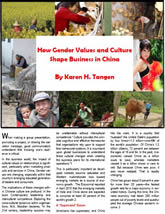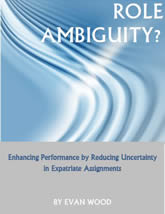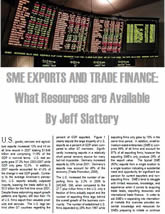| |
|
|
| |
[Introduction of the Guest Editor]
|
|
| |
|
|
We are honored to have Dr. John E. Mulford as our guest editor for this special issue on Exploration Innovation Transformation. Read more
|
|
| |
[From the Editor]
|
|
| |
|
|
Entrepreneurs are change agents. They invent or introduce new products and services, new business models, and even whole new industries. Their ideas influence people’s thinking and their companies provide opportunities for personal growth and economic prosperity. Read more
|
|
| |
|
|
| |
Please note: Views and opinions expressed in the articles published in the Regent Global Business Review (RGBR) represent each author's research and viewpoint and do not necessarily represent RGBR or its sponsors. RGBR and its sponsors make no representations about the accuracy of the information contained in published manuscripts and disclaims any and all responsibility or liability resulting from the information contained in the RGBR. |
|
|
|
 |
Wa and Trust Building Sustainable Business Relationships in Japan
By Jeff Slattery and Corné J. Bekker
The significant cultural, relational and business practice dichotomies of the U.S. and Japan require that American firms and international business managers possess the necessary cultural competence and acumen to effectively interact and conduct business transactions with the Japanese. The following ar-ticle describes the primary cultural, relational and business practices that distinguish the Japanese from their U.S. bases counterparts. The Japanese religious Shinto concepts associated with the rela-tional and harmonious principle of Wa serve as a foundation for the dialogue. In addition, the discus-sion incorporates the concepts of trust from Japanese and Christian perspectives as a means to form-ing a bridge that advances the level of cultural competence and mutually beneficial social and busi-ness relationships.
|
 |
How Gender Values and Culture Shape Business in China
By Karen H. Tangen
A professor of business and economics is given a unique opportunity to survey university students in mainland China. The results of this research provide new understanding of the role gender values play in Chinese culture. The survey reveals essential information for those interested in developing suc-cessful business relationships and marketing strategies in China.
|
 |
Role Ambiguity? Enhancing Performance by Reducing Uncertainty 17
In Expatriate Assignments
By Evan Wood
Role ambiguity results when there is a lack of clarity by individuals about the expectations of his or her role by the organization and colleagues. Role ambiguity is most common in new positions or in posi-tions undergoing change, such as that of new expatriates. Role ambiguity is shown to have a direct effect. Reduced role ambiguity has been shown to have a strong positive impact on cultural adjust-ment. More importantly, reduced role ambiguity has been shown positively impact job performance. This article makes that case that MNCs should seek to create greater role clarity at each step of the expatriate assignment cycle.
|
 |
SME Exports and Trade Finance: What Resources are Available
By Jeff Slattery
U.S. goods, services and agriculture exports hit an all time record in 2007 totaling $1.646 trillion and comprising 11.9% of the GDP in nominal terms. U.S. real exports grew 37.3% from 2003-2007and in 2007 exports accounted for 41.4% of real GDP growth. U.S. exports outpaced imports but despite the-se astonishing figures, still less than 1% of U.S. firms export. In addition, small-to-medium-sized-enterprises (SME's) tend to struggle with limited resources, knowledge, and experience when it comes to trade leads, exporting and international trade finance. In order to aid SME's in expanding abroad, this brief overview provides essential knowledge and resources for SMEs preparing to begin the pro-cess of obtaining trade leads, exporting and specifically international trade finance. |
| |
|
| |